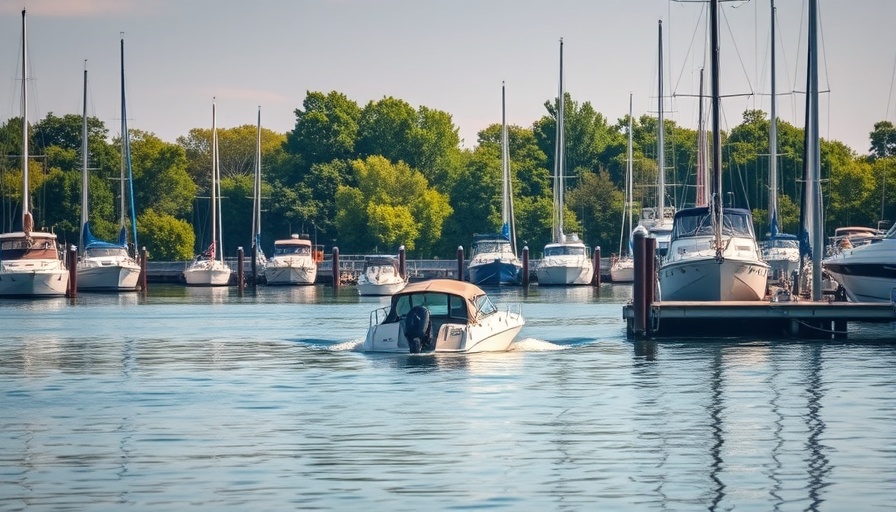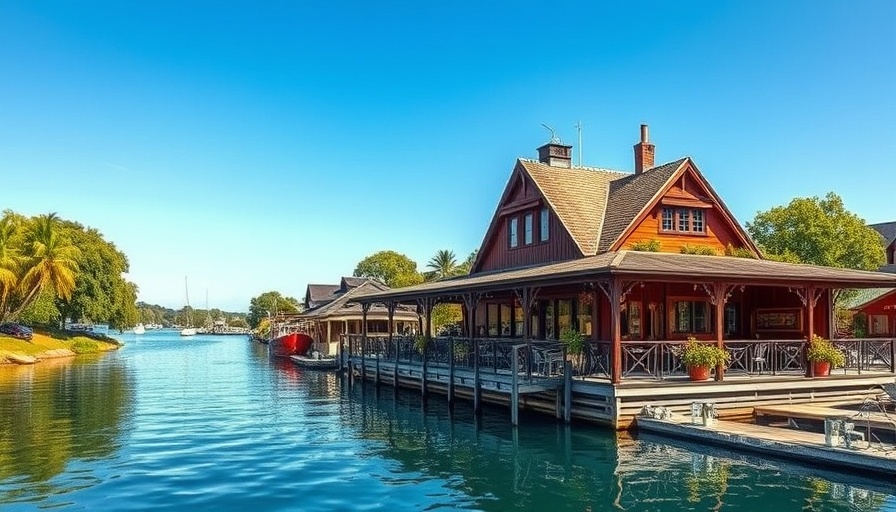
Understanding the Shift in Boating Attitudes
The world of boating is often seen as a glamorous lifestyle, filled with serene moments on the water and exhilarating adventures. However, a recent trend has emerged that dives deeper into the question many enthusiasts and casual observers have been pondering: Why are people backing away from boating?
In 'Backing All The Way Down? Why?', the video explores the recent trend of declining interest in boating, prompting us to delve deeper into the underlying reasons shaping this discussion.
The Changing Perception of Boating
While boating has historically been a beloved pastime for many, the current climate reflects significant shifts in attitudes and participation. Factors such as environmental concerns, increased costs, and accessibility issues have played a pivotal role in shaping this transformation. Boating, once viewed solely as a leisure activity, is now confronted with a broader context that requires us to consider our impact on the ecosystem and examine who gets to enjoy this pastime.
Environmental Awareness Influencing Recreational Choices
One of the biggest contributors to the decline in boating participants is the growing awareness of environmental issues. Many individuals are becoming increasingly concerned about the environmental impact of recreational boating, including carbon emissions, pollution, and strain on marine wildlife. This conscientious mindset drives people to reconsider their hobbies, often leading to a preference for activities that have a lower environmental toll.
Cost Implications of Boating
Boating isn't just about owning a vessel; it comes with a host of associated costs—fuel expenses, maintenance, registration, and insurance can quickly add up. As the financial demands of owning and maintaining a boat rise, many people find themselves opting out of this once-beloved pastime. This economic strain, combined with the fluctuating prices in the markets, leaves a question mark hanging over the future of recreational boating as costs can outweigh the joys of the experience.
The Push for Inclusivity in Boating
This shift in interest also raises an essential point about inclusivity in the boating community. Traditionally, boating has been seen as an elite activity, often associated with socioeconomic status. The community is now looking towards expanding accessibility, ensuring that everyone—from diverse backgrounds to different income levels—can partake in boating experiences. Addressing these disparities is imperative if we want to foster a more inviting culture that encourages newcomers to the sport.
Future Predictions for Boating
With these discussions springing up, it's crucial to explore what the boating future holds. As awareness and inclusivity become guiding principles, we could see the emergence of eco-friendly boating options, community-driven initiatives to renovate marine environments, and affordable programs aimed at enhancing participation across all demographics. The key lies in balancing tradition with innovation—a challenge that the boating community must embrace if it hopes to thrive in the future.
Community Engagement in Boating
While the questions surrounding boating are complex, the emphasis should be on keeping the conversation ongoing. Organizations and local boating clubs can cultivate a community spirit that encourages involvement through educational programs, resource-sharing initiatives, and sustainable practices—possibly reversing the downward trend. Engagement around these topics can breathe new life into boating, making it a cherished activity yet again.
Ultimately, the transformation within the boating landscape is a call to action. Individuals and organizations are encouraged to recognize the underlying challenges and advocate for solutions that foster a balanced, inclusive, and environmentally sensitive approach to enjoying boating.
 Add Row
Add Row  Add
Add 




Write A Comment